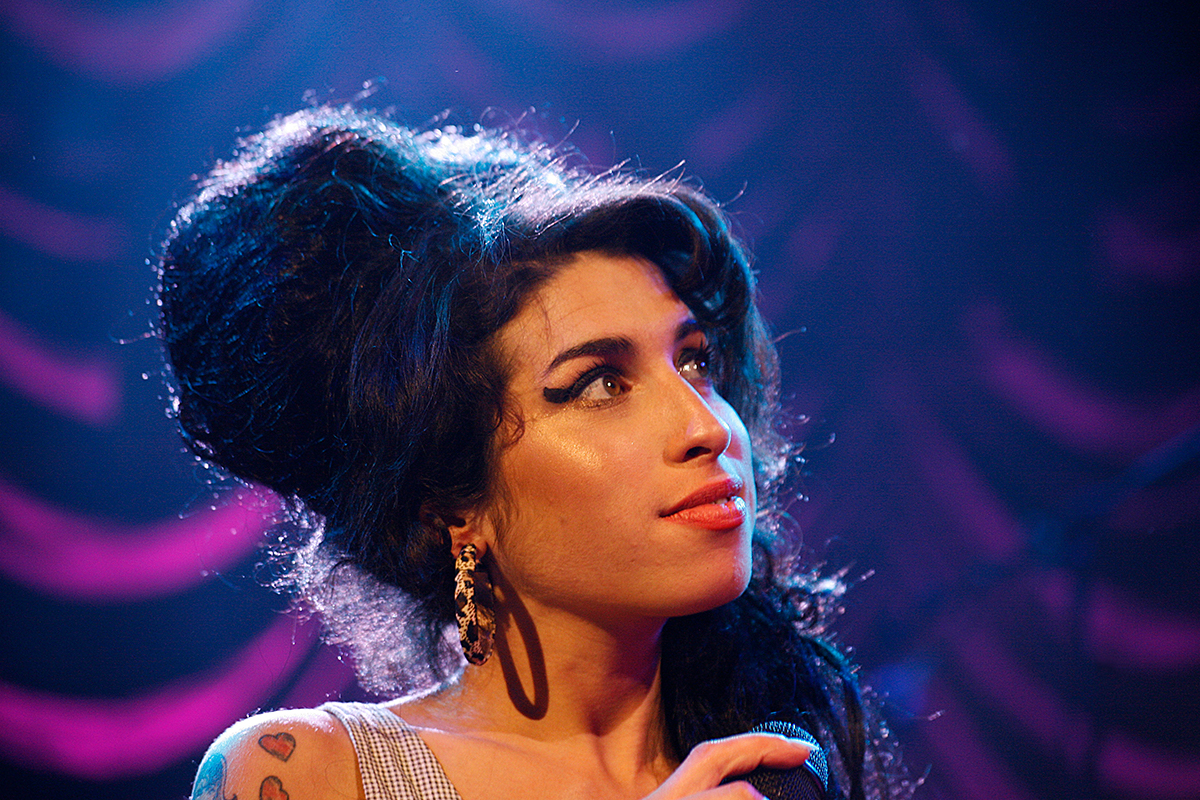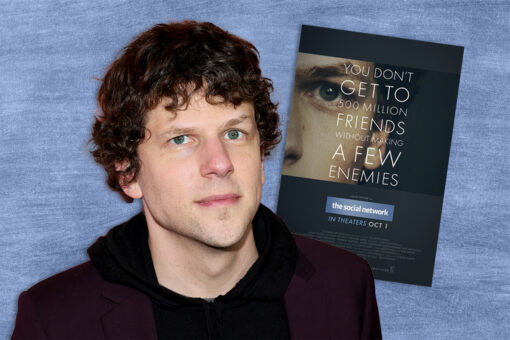There’s a shaky clip of old footage of Amy Winehouse in her early 20s explaining that she’s desperate to have six kids, then shouting “Mazel tov!” before pantomiming the action of shooting herself in the head. I could relate.
My bat mitzvah coincided with me wearing a retainer with false teeth (yes, really) and took place a month before I grew anything resembling breasts (why, God, why?). I didn’t like who I was or I didn’t know who I was, and I wanted more than anything to just be invisible. The problem was I was a gobby and pushy loud Jewish girl and I couldn’t help that. I don’t think Amy could either.
Amy and I don’t have many other similarities, really. Sadly, I lack any semblance of her musical ability. In fact, I believe the last thing I sang in public was my bat mitzvah Torah portion. And I haven’t struggled with substance abuse to the extent she did, which ultimately took her life way too soon at the age of 27 in 2011. But there was something about Amy’s Jewishness that made me think she just got it, that we would be friends.
Growing up in the U.K., there weren’t so many overtly Jewish famous people. We’ve got Sacha Baron Cohen and Daniel Radcliffe, but Amy Winehouse was different. She lived in North London and grew up in an ordinary Jewish household, just like mine. She looked like the people I grew up with, too. Okay, the huge beehive and leopard print was all (fabulously) her, but her green eyes, strong features, and thick dark brown hair were familiar to me. When my sister puts up her hair and whacks on the chunky eye liner, it’s a bit eerie. To know that someone from the same world as me could go on to create the most powerful and transcendent art made feel less teenage despair. One day, I too could do something extraordinary.
But I did not feel extraordinary. My Jewishness didn’t always sit so comfortably with me. My secular school was 40% Jewish, yet I still found it excruciatingly embarrassing. Being Jewish to me wasn’t a choice. I was Jewish and therefore I would take off school for High Holidays, go to Jewish summer camp, and have a bat mitzvah. Most of my energy was taken up by picking my bat mitzvah dress (it was bright green with rhinestones and a tutu in case you were wondering) and worrying about if there were any cute boys for the guest list. Reader, there were not.
Amy wasn’t ashamed, though. She was an openly Jewish girl, singing about what she wanted to from the deepest parts of her soul without a care for what other people thought. In my favorite interview of hers, Amy quips, “There was no one like me, a Jewish girl who sings jazz.” When people talk about her today, the one thing that everyone mentions is her honesty. No matter where she was interviewed or who she was talking to, she couldn’t help but come across as warm, funny, and completely herself.
Amy ushered in this whole new world for me that made Judaism seem, like, really, really cool. The fact that she worked with Mark Ronson, another fellow British(ish) Jew was mind-blowing. Mark has mentioned that the first thing he thought when he came across Amy was, “Wow, I wonder if she’s Jewish?” only to reveal “in a 10-minute conversation with her, you know she’s Jewish.”
Mark worked with Amy on her second studio album, Back to Black. Of course, the music wasn’t overtly Jewish — no lyrics quoting the Torah or klezmer found here. But whenever I listened to it and still do, I can’t get Amy’s Jewishness out of my head.
Maybe that’s because her music was reminiscent of ‘60s girl groups, where so often the producers and managers were Jewish. Maybe, more specifically, it’s that my dad, a Larry David level of Jewish man, is completely obsessed with that ‘60s sound, too. From a young age I grew up with the Ronnettes, (whispers) the Phil Spector Christmas album, and another Jewish feminist icon, Carole King. By listening to Amy, I was listening to the sounds of my Jewish upbringing.
But what I loved most about Amy was that things didn’t come easy for her. I mean her talent did, that goes without saying, but everything else was a struggle. There was pain. There was addiction. Granted, at 13, I hadn’t an iota of the life experience she did. I remember singing “sniff me out like I was Tanqueray” and my grandpa kindly informing me that that was a type of gin. But I did feel like everything came much more easily for everyone else than it did for me.
I knew I felt emotions too intensely, I said completely the wrong things, I was big and bold, and even if I tried wearing the latest trends in Abercrombie or Juicy Couture, I was always a month or so too late. I thought I was a complete embarrassment. Amy showed me that weirdness wasn’t a bad thing. In fact, it could be a very good thing.
There is nothing more awkward when the DJ announces the first dance at a bat mitzvah party, and while I didn’t know which boy to dance with or how exactly to sway from side to side, I knew that the song had to be by Amy Winehouse. When the first few notes of “Valerie” played, I felt a little more comfortable in my silver ballet pumps. Amy was there with me, in my head, dryly wishing me mazel tov and laughing.
For a few bars, it was okay to be myself, to be a work in progress, and to be Jewish.



